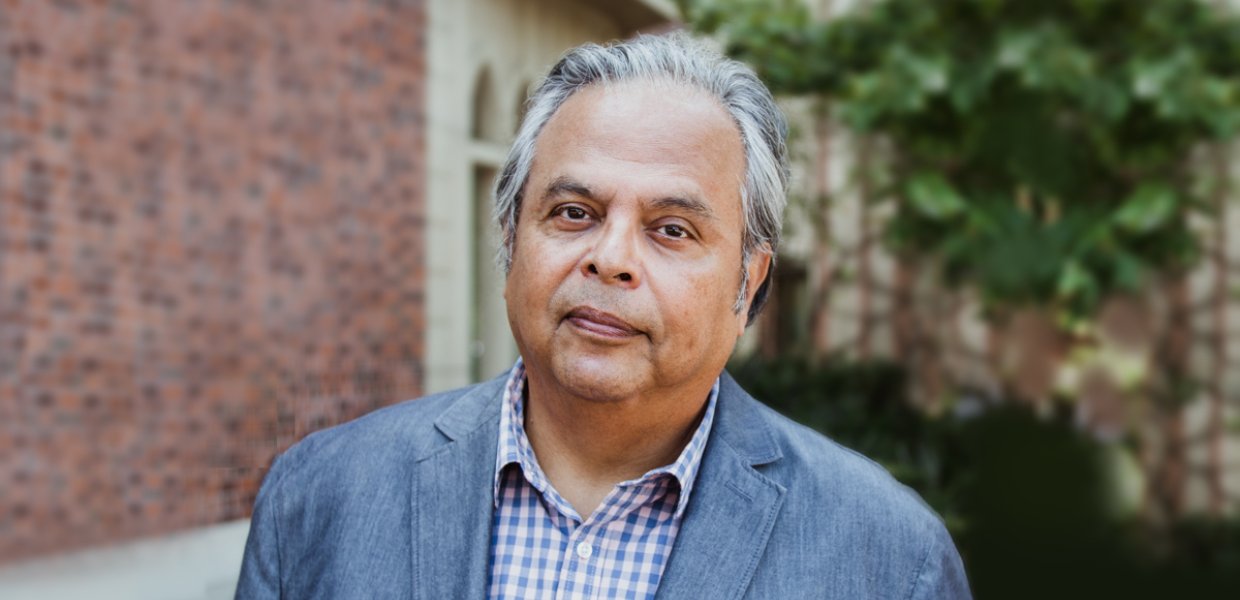As Oscar Garza begins his role as director of the MA in Specialized Journalism (The Arts) this Fall, his goal is to teach students how to engage with the diverse cultures of Los Angeles and beyond.
After attending the University of Texas at Austin, Garza started his career with the hopes of becoming a documentary filmmaker. He worked at PBS stations in Sacramento and San Antonio, TX., but was introduced to print journalism as another storytelling medium and changed directions. Garza worked for the Los Angeles Times for nearly 15 years before becoming editor-in-chief of “Tu Ciudad,” a monthly magazine for Los Angeles Latinos that covered entertainment, lifestyle and current events. Most recently, he was a senior producer of the daily arts and entertainment program, The Frame, and senior editor at Southern California public radio station KPCC overseeing coverage of homelessness, health and emerging communities.
“Almost all of my career in journalism has been spent in the cultural journalism sphere and I hope to expose students to the intersection between arts, food and the social issues pertinent to life in Southern California,” Garza said.
After a robust career outside of higher education, what made you pursue this director opportunity at USC?
I've known Sasha Anawalt, the co-founder of the SJA program, for a long time. I guest lectured in a few of her classes and she would bring students to KPCC every year. I even hired USC Annenberg graduates, so I was familiar with the program. When she decided to retire, she encouraged me to apply. Similar to how a theatre or music producer puts elements together to create the final piece, I wanted to be able to use my skill of connecting people and expose students to new opportunities and people who are going about their careers in non-traditional ways because I understand that not everybody in the program enters with the intention to only work in journalism. My new role as the director gives me the opportunity to create an academic setting where students can learn more about how they can make their passions into a career. I am excited about the potential impact this can have on others.
What are your priorities for the program?
The Specialized Journalism (the Arts) program is about more than food, art and music — it’s about understanding culture. When new communities get established in new areas, the thing that roots them there is culture. Usually, restaurants, music and art are at the root of all that and the reason why this degree program is so necessary to study as communicators and journalists. When we know the communities around us, we learn the issues that are most important to them. My priority is to build more links for students so they can learn how to approach and experience new cultures and become storytellers and advocates no matter what they do after graduation.
The country is going to continue to be more diverse and it should also be the mission of this program to reflect that and contribute to the conversations from a cultural perspective. It is important to me that not only will the faculty and guest lecturers be representative of the melting pot that we live in, but I want to make sure students from all backgrounds feel at home and know about the opportunities this program can give them. That includes putting more emphasis on what culture is outside of food and arts and possibly expanding to courses that look at the culture of politics and sports.
What do you think are some of the challenges for future specialized journalists in the arts?
Well, if people are pursuing or want to pursue any sort of a traditional path in journalism, there aren't a lot of newspaper jobs anymore. There aren't a lot of magazine jobs either, but the digital space continues to grow and become more sophisticated and part of the landscape. So, there are careers that can be made and there is room for creatives to figure out their way and make a new path. We can help students develop their future and help them meet these challenges.
